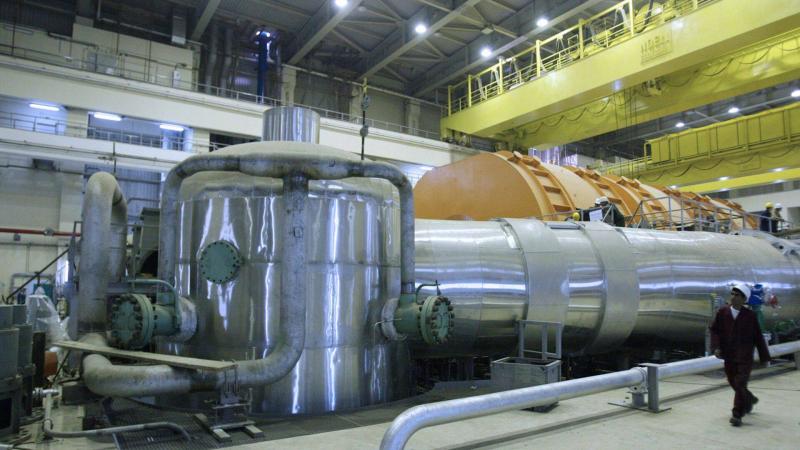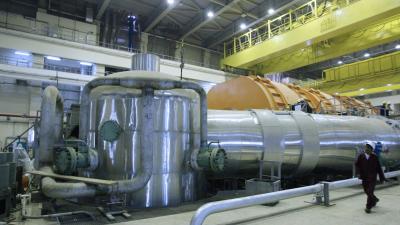Is the Middle East on a path to nuclear proliferation for everyone, akin to "food for every mouth," as noted by Egypt’s great playwright Tawfiq al-Hakim? The recent escalation between Iran and Israel has drawn attention to the nuclear crisis in the Middle East, questioning whether it is on the verge of becoming a region filled with such devastating weapons, rather than remaining completely free from these instruments of death and destruction as those advocating for international peace dream.
It is certain that we are currently facing a dual nuclear scene; however, there is no guarantee that it won't evolve into a triad or quartet scenario, and perhaps even further. Israel will not be the only nation possessing such weapons, as Iran stands on the brink of acquiring them. This necessarily implies that regional countries, in order to establish essential strategic balances, will find themselves compelled to follow suit in front of their populations.
It is no secret that the explosion of nuclear anxiety in the Middle East is connected to Tel Aviv, which still refuses to disclose its nuclear arsenal, while it is known broadly that it possesses a significant number—amounting to several hundred. On the other hand, this concern is also linked to the developments of the Iranian nuclear program, which has advanced alarmingly in recent weeks. Those who have followed the statements of Rafael Grossi, the Director General of the International Atomic Energy Agency, have likely concluded that Iran is mere weeks away, not months, from possessing a nuclear bomb, with strong indications that it may already have prototypes of such weapons of mass destruction.
The recent troubling question in the region is: "Were the Iranian missiles launched at Israel a signal understood by Israeli military generals indicating that Tehran no longer fears formal confrontation?" If this is indeed the case, which seems likely, it has significant and potentially dangerous implications, suggesting that if Iran has not already crossed the nuclear threshold, it is very close to doing so. Perhaps this is why it has refrained from deepening its attacks recently, focusing instead on acquiring a nuclear deterrent missile system, which would enable it to retaliate against an attack in kind.
What does Iran need to formally enter the nuclear club? It is not particularly difficult, as besides fissile material, there are detonation mechanisms and means of delivering them to targeted sites. It is likely that Iran already possesses the technical knowledge required to produce a simple internal detonation device, similar to the one dropped by the United States over Hiroshima in 1945. Here, the Iranian pilot must avoid entering enemy territory to be able to deploy it. Alternatively, the detonation devices could be delivered inside containers shipped overland or loaded onto ships.
To strike a distant target, Iran needs a sufficiently small warhead to be mounted on one of its ballistic missiles. The advanced scenarios do not seem impossible for the Iranians, especially given the extent of their reach, where their war proxies are present, which would serve as a dangerous logistical weapon threatening land, sea, and air during a specific nuclear moment.
Is Iran genuinely intent on unsettling the Middle East with further nuclear anxieties, perhaps beyond its confrontation with Israel? It is assuredly so, both in words and deeds, especially with Tehran hinting at a supposed "change in its nuclear doctrine." What does this doctrine entail, and what changes have occurred? The essence of the nuclear doctrine is that Tehran considers it impermissible to possess nuclear weapons, a principle rooted in a fatwa from Imam Khomeini. However, it is widely understood that this is simply a form of "nuclear taqiya," so to speak, meaning that this claim of the existence of a fatwa is an attempt to deceive others, especially Iran's neighboring countries. Iran’s real desire revolves around possessing this weapon, which would make it a regional counterweight to Israel specifically and enable it to share influence in the Gulf and the broader Middle East.
The discourse regarding changing this flimsy or non-existent doctrine stems from a report by the semi-official Iranian news agency Tasnim two weeks ago, where a senior commander of the Iranian Revolutionary Guard, Ahmad Khak Talab, stated that Iran might reconsider its nuclear doctrine. The intended implication here is that due to Israeli threats against its nuclear facilities, Iran may reassess its beliefs—transforming its nuclear program, designed for benign civilian purposes, aimed primarily at generating electricity for industry, into military purposes.
The recent statement indicates that Iran, regardless of how much it tries to conceal or downplay its nuclear ambitions, is forging ahead with them, determined to respond to any attacks with the same weaponry that it possesses.
So, what actions should be taken in light of Iran's nuclear ambitions and the thresholds it has crossed or is nearing? In reality, there are only two scenarios: either direct American action or delegating Israel to launch intensive strikes against Iran's nuclear sites. In this case, Iran would undoubtedly retaliate in kind, which means the potential for entering a cycle of nuclear winter in the Gulf and the Middle East, and this might escalate into a global nuclear confrontation, something desired by one party but dreaded by both sides and their supporters.
The recent events affirm that the balance of terror and deterrence is both present and forthcoming, traditionally and nuclear. The second scenario is accepting Iran as a member of the nuclear club, thereby making it the tenth nuclear state, following Russia, the United States, France, China, Britain, India, Pakistan, North Korea, and possibly Israel, which has neither confirmed nor denied its nuclear capabilities and prefers to remain in a gray area regarding this issue.
The concerns at hand are genuinely shared in the key and influential Middle Eastern capitals, historically and geographically, particularly among the larger demographic stakeholders. The question remains: will they simply stand with their arms crossed, watching the Iranian-Israeli nuclear race, and the threatening missiles crossing sovereign borders? This will not happen; the alternative will be a concurrent endeavor within the contexts of nuclear balances, which is the only thing that can mitigate the danger. Everyone learned during the Cold War that without the balance of terror and nuclear deterrence, one of the two major blocs would have collapsed. However, the possession of atomic death tools by both sides eliminated the threat.
Is the Middle East on the brink of nuclear proliferation, or is a calamity standing at the door?




